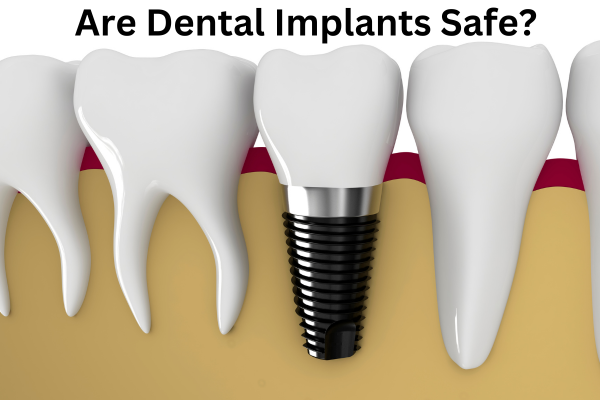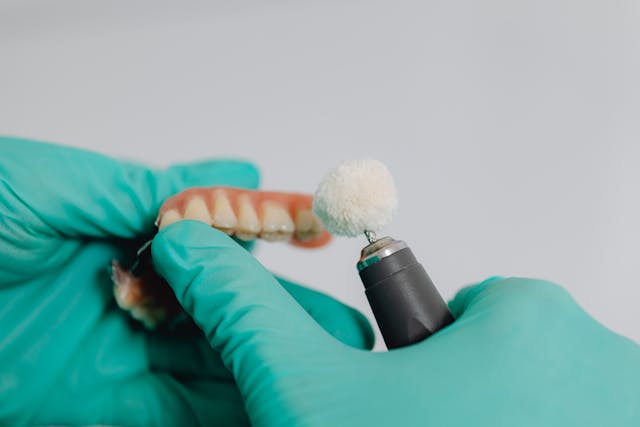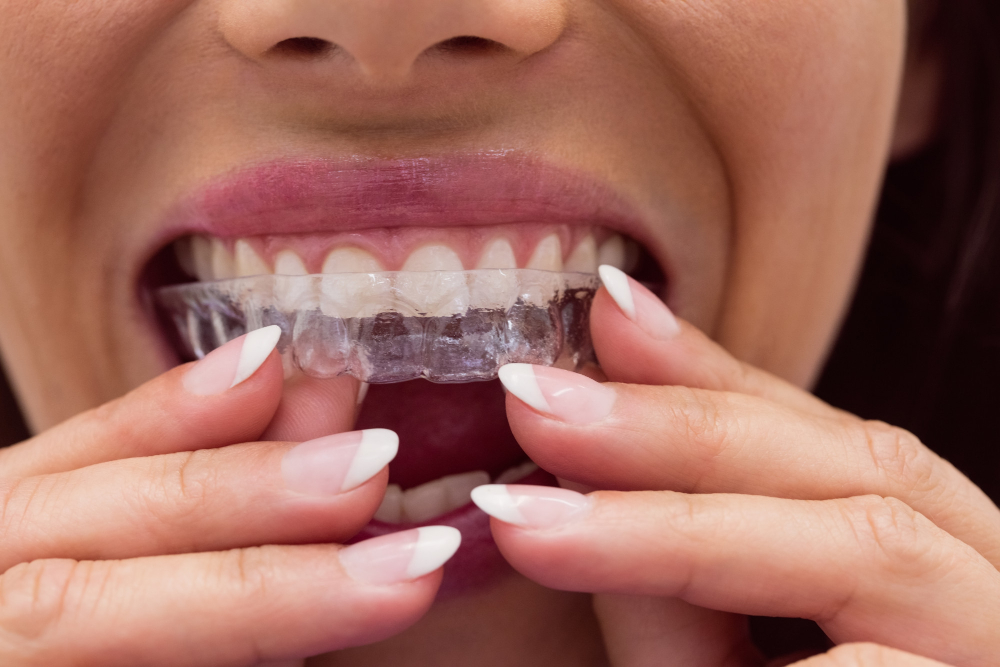Your smile is the best outfit that you can wear to boost your confidence; however, if there’s a gap in your smile, you may feel less confident in public gatherings. When you search for methods to replace your missing tooth and complete your smile, dental implants will show up to be the best tooth replacement option.
But you may ask yourself numerous questions like, “Are dental implants safe? Am I the perfect candidate for dental implants?”
Losing a tooth due to injury or disease can lead to issues like bone loss, speech problems, and discomfort while eating. Dental implants offer a solution by replacing the lost tooth, improving health and quality of life. These implants consist of a body, an abutment, and sometimes a fixation screw. The body replaces the tooth’s root in the jawbone, while the abutment supports artificial teeth and extends through the gums into the mouth.
Are Dental Implants Safe?
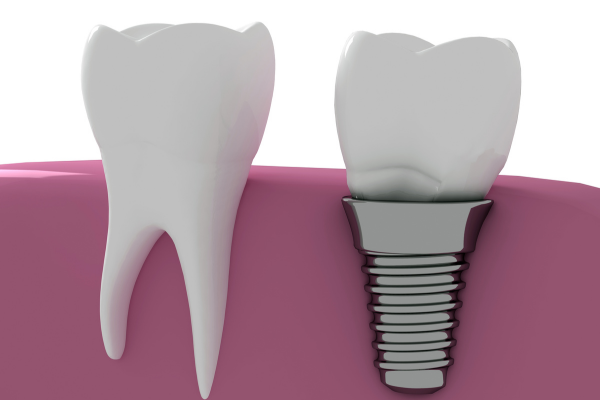
Are dental implants safe?
Absolutely. Dental implants are considered extremely safe, with over 30 years of successful use in dentistry. For most healthy patients, the risk of complications during the procedure is minimal.
How safe and effective are dental implants? Studies show that 90-95% of implants are still in excellent condition after ten years, with 95-98% success rates over 40-50 years.
Are There Any Complications Regarding Dental Implants?
Dental implants are highly secure, especially when placed by seasoned dentists like Dr. Todd Christianson or Dr. Nathan Hanson at RiverRock DDS. Nonetheless, being aware of potential complications in certain situations is important.
The most prevalent issue is “peri-implantitis,” an infection affecting the gum tissue surrounding the dental implant. It can result from inadequate cleaning of the implant site during the procedure or insufficient post-surgery care by the patient.
However, collaborating with an experienced dentist for implant procedures and diligently following post-surgery instructions virtually eliminates the risk of encountering this complication.
The implant might not integrate with the bone as intended in rarer instances. It’s more likely among patients with weakened jawbones, making thorough pre-implant planning and potential procedures like bone grafting crucial to prevent this complication.
Implant rejection, referred to as “foreign body rejection,” is another rare concern. It occurs exceptionally infrequently and is triggered by an immune system or allergic response to the tooth implant. Nonetheless, such complications are exceedingly rare, affirming the overall safety of dental implants.
Am I a Good Candidate for Dental Implants?
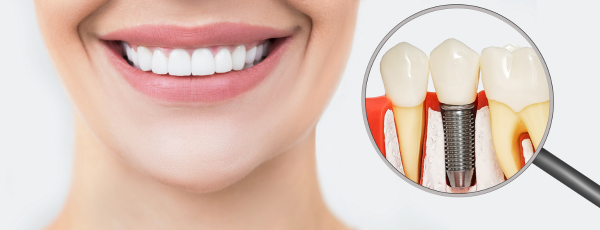
Not everyone is an ideal candidate for implant dentistry. Generally, individuals in good physical health with sufficient jawbone density are typically well-suited. If you’re seriously considering implant dentistry, it’s crucial to seek guidance from a qualified implant dentist who can assess your unique situation accurately.
Age Considerations
While there’s no strict age requirement for implant dentistry, factors like jawbone density and overall health often lead implant dentists to consider adults aged eighteen and above for implant treatments primarily. Keep in mind that older patients might experience longer healing times, and aspects like implant stability can also vary based on age.
Health Prerequisites
Successful implant dentistry hinges on good dental and overall health. Sometimes, patients might need additional treatment to enhance their oral health before implant placement. For example, implant dentists might recommend a root canal or other restorative procedures before implant placement to establish a sturdy foundation for long-term implant support.
Additional Factors
Numerous factors contribute to determining someone’s suitability for implant dentistry, including jawbone density, gum tissue texture, and medical history. Conversing with your implant dentist about these factors is essential to ascertain whether implant treatments align with your optimal choice.
Is The Procedure of Dental Implant Safe?
The dental implant procedure involves oral surgery and should only be executed by a skilled dentist. Here’s a glimpse of what to anticipate during an implant procedure at RiverRock Dental:
- Thorough Examination and Personalized Plan: We begin with an extensive exam and consultation with the dental implants team, utilizing cutting-edge dental technology. A tailored treatment plan is crafted to suit your specific needs.
- Implant Placement: In the subsequent session, the team will insert the implant as a substitute tooth root. Local anesthesia guarantees a comfortable and pain-free experience throughout the procedure.
- Healing & Integration: Allow the implant to heal and fuse with the bone tissue, typically spanning a few months.
- Abutment Attachment: Once the implant is firmly integrated, a small connector called an abutment is affixed to it.
- Restoration Creation: Impressions are taken of your teeth to craft a customized crown for single-tooth replacement or an implant-supported bridge/denture for multiple missing teeth. Crown restorations match seamlessly with your natural teeth.
- Final Attachment: The completed crown, bridge, or denture is connected to the implant(s), granting you functional new teeth.
The River Rock Dental team and implant dentist will closely monitor your progress, ensuring your comfort. After placement, implants offer natural function and sensation, enabling you to eat your favorite foods and confidently display your smile, knowing it’s at its finest.
Conclusion
Interested in learning more about how dental implants can benefit you? Fantastic! We’re excited to schedule an appointment for you where you can determine your eligibility for dental implants. An ideal candidate generally maintains good overall health, which involves maintaining a balanced diet, engaging in regular exercise, refraining from smoking, and being free from significant health concerns.
Don’t hesitate to contact us to assess your candidacy for implants! We’re always here to assist and address any queries you might have. We prioritize ensuring that anyone considering dental implants is well-informed and prepared for the procedure.
Let us guide you toward optimal dental and oral well-being choices!
FAQs
-
Are dental implants safe in the long run?
The dental implant process is divided into multiple stages spanning several months. This deliberate approach allows for properly healing the bone and tissue in your mouth between each phase. Dental implants are known for their long-lasting potential and are deemed safe for many individuals.
-
At which age do dentists recommend dental implants?
Numerous patients mistakenly assume that tooth loss is exclusive to the elderly. They often connect treatments like full dentures with their older relatives. However, tooth loss can affect individuals of any age, and dental implants are a viable option for all adults, regardless of age.
-
What is the failure rate of dental implants?
Research indicates that approximately 5% to 10% of dental implants do not succeed. Conversely, this implies a favorable success rate of 90% to 95%, representing excellent odds in dental and medical procedures.

